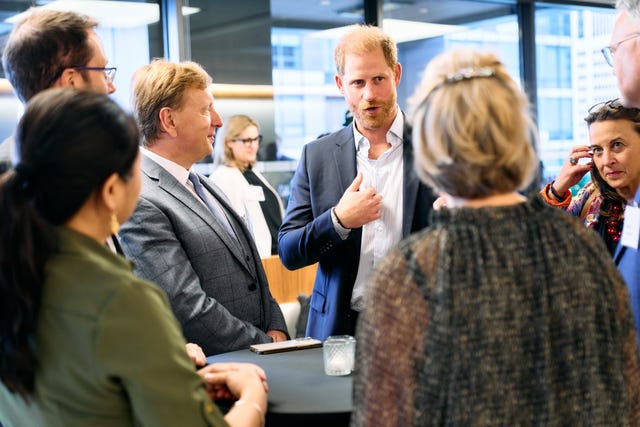The Prince of Wales has called for action to save the world’s wildlife, habitat and natural resources “buckling under the pressure of our actions”.
William said the issue was the “most pressing existential threat we face” in a video message screened during a UN General Assembly event in New York, a few hours after his estranged brother the Duke of Sussex spoke in person in the city.
Harry delivered a passionate speech at the Clinton Global Initiative on Tuesday and urged the world to tackle the “pervasive threat” the online world poses for children, warning: “Our kids can’t wait”.
New York was the setting for the third annual Earthshot Innovation Summit on Tuesday where, by video message, William announced the finalist in his Earthshot Prize environmental award.
He attended the event in the Big Apple last year but did not fly to America this week, while his brother chose UN General Assembly week to carry out a series of events in New York.
William told a reception of world and indigenous leaders gathered to discuss biodiversity: “Thankfully, in 2022 the world adopted the Biodiversity Plan in Montreal and committed to transformative action to halt and reverse biodiversity loss by 2030.
“But, we now have just five years to deliver on our collective promise.
He added: “We must act to save our rivers, oceans, savannas, mangroves and forests, as well as the communities that protect and live alongside them.

“We must act with urgency to protect at least 30% of our land, inland waters, and ocean by 2030.”
The prince called for a halt in the “unsustainable production and consumption of natural resources”, greater working with indigenous and local communities and “traditional custodians of biodiversity”, and redirecting “harmful subsidies” that are “wreaking havoc on our natural world” as well as investing in “alternative solutions”.

